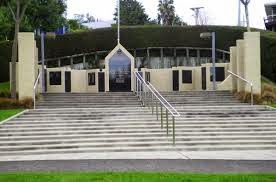Next Monday, 25 April, is ANZAC Day.
It’s the day New Zealanders and Australians join together to commemorate all those who served in wars, conflicts and peacekeeping operations. Other countries have similar days of remembrance: the US have Memorial Day and Veteran’s Day, while the UK has Remembrance Day and Remembrance Sunday.
ANZAC Day is an important day for us. It’s a public holiday, and only essential services are allowed to be open. There are heavy fines for businesses who open on the morning of ANZAC Day: as a nation, we want everyone to be able to attend a commemoration service. No, not everyone does, but they can. ANZAC Day is also observed in Canada and many Pacific Island countries.
Australia and New Zealand chose this day specifically to commemorate the ill-fated Gallipoli campaign, which began at dawn on 25 April 1915, when the Australian and New Zealand Army Corps—the ANZACs—landed on the Gallipoli Peninsula in Turkey. It was the first major battle either country had been involved in which led to major casualties, and forged our identities as nations.
As I’ve done for the last five or six years, I will be awake, showered and dressed long before dawn. I’ll attend the Dawn Service in the grounds of the local Returned Services Association (RSA), wearing the green and black uniform of the local Brass Band, sitting front and centre and playing my tenor horn.
The Dawn Service is special.
We arrive while it’s still dark and watching the sun rise as the music plays and prayers are intoned. I’m always impressed by the number of families with children. Some wear medals that used to adorn the chest of their father, grandfather or perhaps great-grandfather. They wear these medals with pride, in memory of men they may never have met, men who have become legends for their service and sacrifice.
Also present are the legends themselves, men who fought in France, Crete, North Africa, Korea, Vietnam, the Falklands, Afghanistan. These men wear the medals they earned facing enemy fire under what were often horrific conditions.
There are no longer any veterans of Gallipoli with us, but we still meet at dawn on 25 April to remember and honour the men who served in that disastrous campaign. And we meet to honour those who served in subsequent wars in the Army, Navy, and Air Force, as well as those who served in the merchant navy to keep the home nations supplied and fed, and who were just at risk of being torpedoed or bombed as their army and navy counterparts.
The veterans and visitors sing as we play the God Save the Queen, the national anthems of Australia and New Zealand, and a hymn. I will be able to hear a pin drop when Peter, our lead cornet player, stands to play the Last Post, as we pay silent tribute to those who fought and died for freedom.
After the Dawn Service and a hot breakfast at the RSA, we’ll head to the civil service at the city’s official war memorial, Memorial Park. This service starts with a march, led by shuffling veterans who have fortified themselves at the RSA bar, followed by the cadet forces marching proudly, then groups such as the Boy Scouts and Girl Guides.
A group of Army, Navy and Air cadets will form the honour guard, standing to attention throughout the service. The choir will lead the congregation in singing hymns and the National Anthem. The band will play quietly as wreaths are laid by representatives from local community groups. An Army chaplain will pray for the fallen. Peter will play the Last Post again—still poignant, although not as spine-chilling as in the pre-dawn light of the Dawn Service. A student representative from one of the local high schools will read the famous poem, In Flanders Fields.
Everyone will be silent, as befits such a solemn occasion.
Another student, perhaps the Head Girl of one of the local high schools, will deliver a speech about what ANZAC Day means to her. She’ll be wearing the formal school uniform: tie, jacket, and stockings. She might mention a family connection to one or both World Wars, or possibly a later conflict. She will talk about freedom from oppression, and about innocent young men who travelled far from home and made the ultimate sacrifice, their lives in exchange for our freedom. She might even quote the Bible: For greater love has no man than this, that he lay down his life for his friends.
But her polished speech will miss the most important sacrifice: the sacrifice Jesus made on the cross for your sins and for mine. She will miss the end of the story of sacrifice: the victory Jesus gained through the resurrection. ANZAC Day without Jesus is like Good Friday without Easter Sunday.
It’s only half the story.
ANZAC Day is important. It’s a time to come together as a community and remember those who have gone before, those who gave their lives that we might live. But it’s more than a commemoration of sacrifice.


